Australians opting for flexible work hours over increased pay
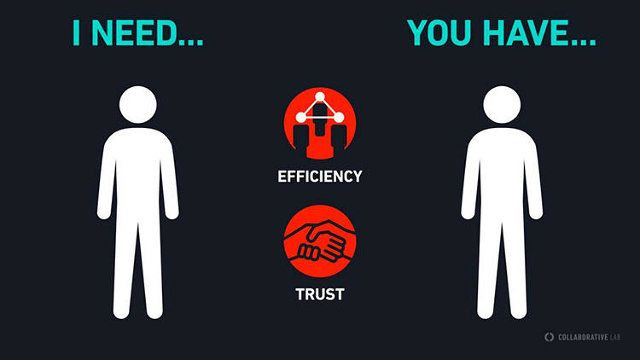
Airtasker’s third future of work study reveals that more Australian workers are prioritising flexibility over pay when looking for jobs.
Of the 1,002 Australians surveyed, around 81.5 percent agreed that the traditional 9-to-5 employment model was inflexible – a rise from the 76.4 percent who agreed with the statement in 2015.
Follow us on Twitter
Almost 37 percent also said that working in a more flexible environment increased their productivity and motivation, while 40.4 percent said it increased their enjoyment at work.
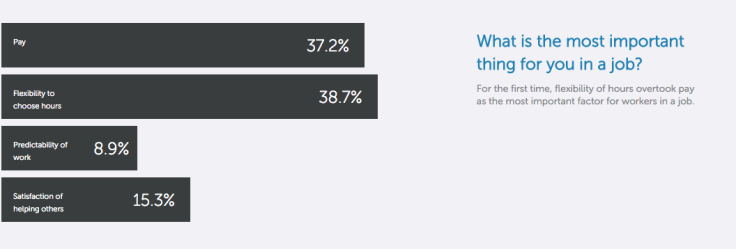
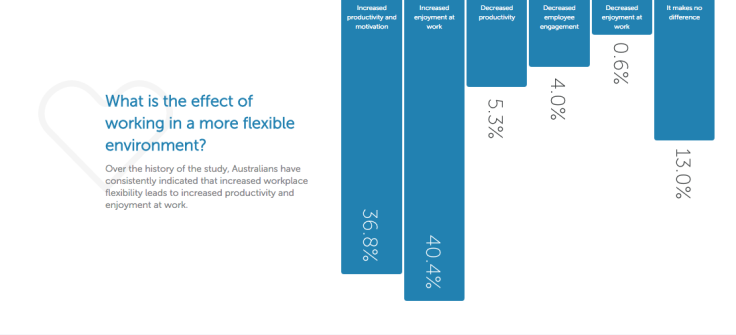
According to the research, which was carried out by Pureprofile, the fervor for job flexibility is largely to do with individuals being able to earn a reliable income outside of traditional jobs.
“The figures note a distinct shift in the mindset of the Australian worker. The idea of attaining a work-life balance is no longer about the amount of hours worked,” Airtasker CEO Tim Fung explained.
“It’s is now all about getting the most out of your free time, and maximising your earning potential by working smarter.”
A case in point is 33-year-old KPMG management consultant Katie Drover, who the AFR revealed in December reduced her workload to four days so she could devote more time to DJ-ing at clubs on the weekend.
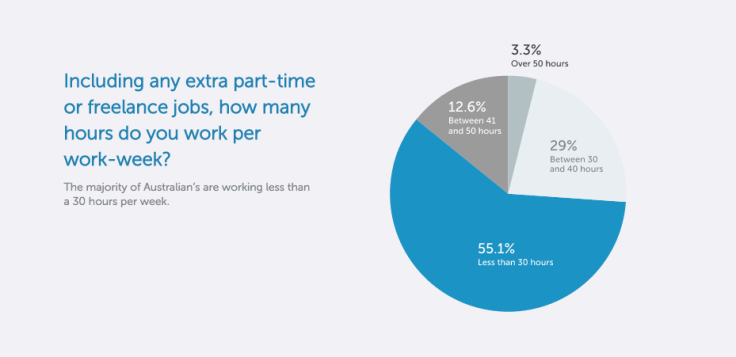
Fung points to a growing awareness of and participation in the sharing economy – the expanding market of peer-to-peer-based access to goods and services such as GoGet, AirBnB and Uber – as one of the reasons why flexibility is favoured.
After all, it is not uncommon today to hear stories of full-time workers driving an Uber taxi on the weekend to earn more money.
Participating in the sharing or collaborative economy is also less of a rarity for younger workers – Airtasker’s research found that 61 percent of 18-24 year olds surveyed would use “on-demand” apps as a way to earn extra money in 2016.
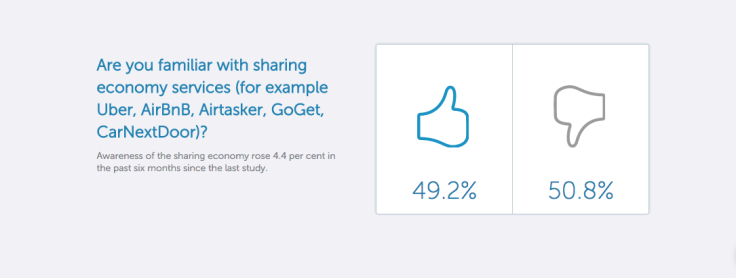
Running parallel to workers’ inclination towards flexible work hours is the rise of companies looking to engage with employees on a temporary basis. According to recruitment agency Hay’s top 12 recruitment trends for 2016, engaging talent on long-term rather than permanent contracts will be a big thing this year as organisations seek more flexible headcounts.
“Projected modest growth in the public sector will comprise primarily of temporary and contract employees,” the recruitment giant noted.
“For candidates this means that being flexible and staying open to both contract and permanent is a must in 2016 if you want to access a greater range of opportunities.”
Creating free time to get more done
Meanwhile, Airtasker’s study also found that up to 38 percent of respondents surveyed intend to outsource their chores this year to free up personal time.
Of this 38 percent, the majority said they would rid themselves of five hours or less of housework each week.
Up to eight percent indicated they would outsource over 20 hours worth of chores.
"I work in advertising and with two children to look after, I have very little time to complete personal tasks," says Jen Peace, a 39-year-old who lives in Manly, Sydney.
"I got on Airtasker and paid a small amount. Everything I’d been waiting for five years to get done was done in five days…like gardening, removing metal bars, painting and fixing doors.”
Last year, it was reported that Sydney barrister Bridie Nolan spent a massive $6,500 a week on a live-in nanny, three cleaners, an executive assistant and a researcher. The mother/step-mother to five said she “simply could not do it all, maintain a (legal) practice and be nearly human”.
Although some may frown upon outsourcing work which can be done without help, director of financial education program Money School, Lacey Filipich, said outsourcing household chores could make sense if an expert does it faster or cheaper, or if it is a chore that is detested.
“Outsourcing is all about valuing your time,” Filipich told the Sydney Morning Herald.
"By choosing to outsource a task, you're effectively saying your time is more valuable than whatever it's costing you to get someone else to do the work for you.
"It's difficult to quantify the emotional and mental benefits of outsourcing, but they're at least as important as the financial benefits.”





















